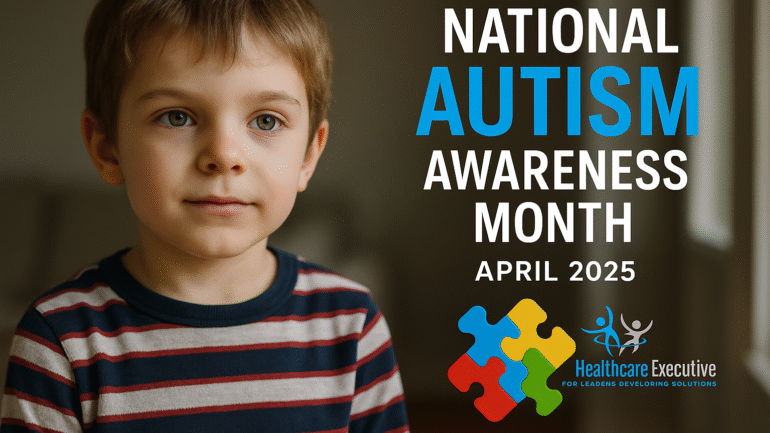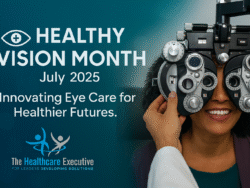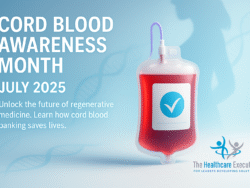National Autism Awareness Month – April 2025

- Posted by Greg Wahlstrom, MBA, HCM
- Posted in Health Observance Calendar
Leadership for Inclusion, Access, and Neurodiversity
Published: April 5, 2025
April is observed as National Autism Awareness Month, a time to elevate conversations around neurodiversity, early intervention, and inclusive healthcare design. As of 2025, the CDC estimates that 1 in 36 children in the United States is diagnosed with autism spectrum disorder (ASD). For healthcare executives, these numbers demand more than awareness—they require action. Hospital environments can be loud, fast-moving, and overwhelming for individuals with autism, creating unique access barriers and care delivery challenges. Systems like Kennedy Krieger Institute have pioneered autism-specific protocols that combine sensory-sensitive design with tailored communication strategies. Executive leaders can champion similar models within EDs, clinics, and inpatient units. Autism awareness isn’t a marketing campaign; it’s a leadership imperative for anyone driving patient-centered outcomes. To that end, hospitals must treat inclusivity as infrastructure—not just intention.
Executive teams should also consider workforce inclusion. Neurodivergent professionals face high rates of underemployment and often lack access to supportive environments. Health systems like Cedars-Sinai are developing hiring initiatives to include neurodiverse clinicians, IT specialists, and operations staff. Creating psychologically safe, structured workspaces benefits not just neurodiverse employees but the teams they work within. This commitment to inclusion must extend into HR practices, leadership development, and patient engagement strategies. In our article Advancing Health Equity Through Strategic Initiatives, we explore the operational changes that turn DEI policy into measurable impact. Autism awareness is incomplete without neurodiverse visibility in leadership and care delivery teams. As healthcare moves toward equity-based metrics, neurodiversity must be included in executive dashboards.
Families navigating autism face some of the most complex and emotionally charged care experiences in the health system. Care coordination often spans multiple specialists, school systems, social workers, and behavioral health providers. Inconsistent access, fragmented communication, and a lack of trauma-informed practices compound the stress. Hospital executives must support integrated autism care models with clear governance structures and financial backing. For example, Children’s Hospital of Philadelphia offers an Autism Integrated Care Program that consolidates services to ease the patient journey. Leadership must align financial stewardship with family dignity and operational efficiency. Autism awareness means more than understanding symptoms—it means reshaping the entire care experience to support resilience and trust. From executive boards to bedside teams, this is a system-wide redesign opportunity.
Technology is also transforming how hospitals serve individuals with autism. Mobile apps for real-time communication, predictive analytics to forecast behavior triggers, and VR-based training tools for staff are redefining what inclusive care looks like. These innovations must be evaluated and adopted with thoughtful governance—ensuring they work for patients, not just administrators. In our recent article AI in the C-Suite: Redefining Decision-Making for Healthcare Executives, we discuss the importance of deploying tech with compassion and caution. Autism-informed tech should reduce friction in patient interactions and elevate care personalization. The question isn’t whether digital tools can help—it’s whether executives are building teams that can use them responsibly.
April 2025 provides a focused moment to reassess how systems engage with neurodivergent patients, staff, and community members. Healthcare executives have the power to change physical spaces, digital tools, hiring practices, and clinical operations in ways that support inclusion. Hosting educational sessions, updating sensory room protocols, funding peer support networks, and elevating neurodiverse leaders all send a powerful message. The Autism Society and organizations like Autism Speaks offer toolkits for hospitals ready to act. At The Healthcare Executive, we remain committed to building systems that are structurally safe and socially responsive. Autism awareness is not an annual campaign—it’s an ongoing standard of care and leadership.
Discover More: For executives seeking deeper insights into how trust, communication, and leadership shape the patient experience across all abilities and identities, we recommend exploring this resource from our blog.
Internal Links
- Advancing Health Equity Through Strategic Initiatives
- AI in the C-Suite: Redefining Decision-Making for Healthcare Executives
- Trust as a Strategic Asset: Reputation, Outcomes, and the Patient Voice



